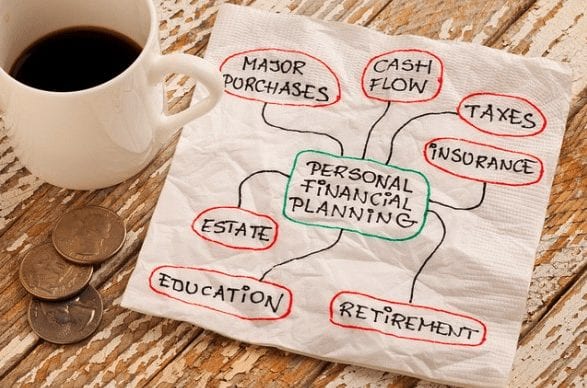Table of Contents
edCircuit Opinion
Take a walk down memory lane with me. Imagine you’re entering the good ole’ college days again – your freshman year. You did everything in your power to avoid math classes in High School and hope to do the same now that you’ve reached higher education. Your new debit card is burning a hole in your pocket, and mom and dad are no longer around to tell you “no”. You’re officially on your own.
Today, too many students are getting away with not being immersed in economic courses. In fact, statistics show that it’s getting worse. Fewer schools are requiring a course in economics in order to graduate. It’s evident that students do not know how to handle their finances when they are finally on their own. Nearly half of college students do not manage their personal finances, and 58% do not save money each month. But where does it go? 38% of college students cite food as their biggest expense. Alcohol and drugs come in second at 25%. This begs the question – why are schools not emphasizing the importance of financial literacy? What are ways that we can better prepare students upon graduation? Is this the school’s responsibility, or the parents?
At a Glance
- States with rigorous economic mandates get their graduates off to a better start. Yet, the number of states that require students to complete a course in economics has dropped
- When college students rated their ability to manage their personal finances, 43% said that they do not keep track of their monthly spending and 58% do not save money each month
- 38% of college students cite food as their biggest expense. Alcohol and drugs come in second at 25%
Around the Web
U.S. schools get failing grade for financial literacy education
Shelly Schwartz | CNBC
The number of states that require high school students to complete a course in economics has dropped over the last two years, and mandates for personal finance education in the upper grades remain stagnant a new survey shows.
The biennial Survey of the States by the Council for Economic Education, released exclusively to CNBC.com, found 20 states currently mandate that high school students take economics — two fewer than in 2014.
There has been no change since then in the number of states that require standardized testing of economic concepts. Currently, 16 states require testing, which is down significantly from 25 in 1998.
At the same time, the Council for Economic Education survey found the number of states that require high school students to take a course in personal finance has remained unchanged at 17 since 2014.
To read more visit CNBC
College Students Miss Mark on Financial Literacy, Survey Shows
Raymond Scott | Education News
LendEdu, an online marketplace created to offer student loan borrowers insight into their personal finances and loans without damaging their credit, has released its 2016 College Students and Personal Finance Study — and the results show a high degree of financial uncertainty among college students.
The study surveyed current college students on basic personal finance knowledge and tried to gain insight into how they are managing money. The survey is comprised of results reported from 455 undergraduate and graduate students at three different four-year institutions on the East Coast. Each respondent answered 25 questions related to finances and money management. All of the information provided was self-reported, and the survey team was administered by LendEdu.
In its introduction, the survey acknowledges a general lack of financial literacy in the United States. Currently, only 17 states require high school students to take a class in personal finances. Unsurprisingly, the results exhibited students “lacking basic knowledge and confidence” on financial matters. The researchers hope that their findings will impel educators and policymakers to include high formalized coursework on personal finances in high schools, colleges, and universities.
To read more visit Education News






